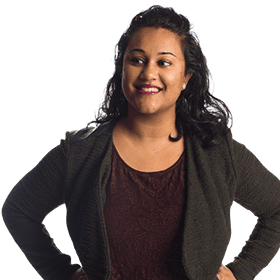DrPH Candidate
Johns Hopkins School of Public Health
FOCUS
By focusing on medicine instead of health, our current health care system fails to incorporate the realities of patients’ lives into their care: where they live, how they move, what they eat. Although we know these social factors have a huge impact on health outcomes, our resources are dramatically skewed toward treatment rather than the upstream services that can prevent disease. To build a Culture of Health, we must shift our economic and political investments from clinical care to the social net that enables well-being.
STRATEGIC INITIATIVE: Toolkit for Community Organizers to Pivot to Democratic Community-owned Health Processes
Economic and social determinants of health—i.e., access to affordable housing and the ability to make a living wage—are directly influenced by representation, power, and policy. These issues have a significantly outsized impact on healthcare outcomes compared to traditional medical care. Our current healthcare industry, however, led predominantly by large healthcare corporations and insurance companies, has previously failed to account for these root causes of illness. As they start to work on these issues, spurred by payment reform and other forces, inequities around ownership and funding remain. Communities, by contrast, have been advocating for these issues for decades. Drawing on lived experience and a deep understanding of the connection between social policies and health outcomes, organizers and advocates have begun to establish alternative models of community-owned health that are democratic and upstream (e.g., a municipal wellness fund accountable to resident voting). My strategic initiative aims to build field infrastructure for these community experts, fostering peer connection and highlighting successful cases to amplify impact. Specifically, it will yield an interactive toolkit for community organizers that will outline strategies for shifting financial and other resources from narrow, health institution-owned processes to democratic, community-owned processes.
MORE ABOUT SONIA
I am an accidental poet, a public health evangelist, and a big believer in questioning existing processes via humor and respectful irreverence. Having worked across the nonprofit, government, and private sectors, I have great conviction that achieving health starts by acknowledging the systems, policies, and practices that have led to poor health outcomes in our country—and all of our respective roles in perpetuating that status quo.

